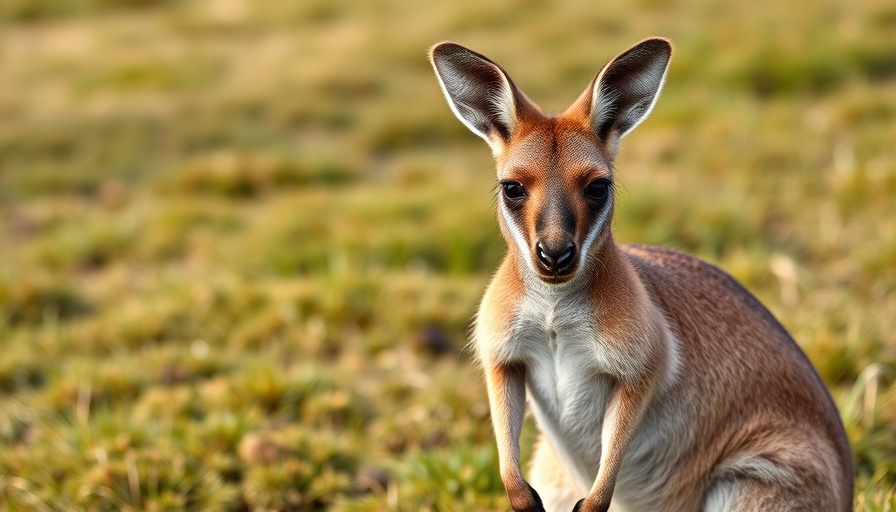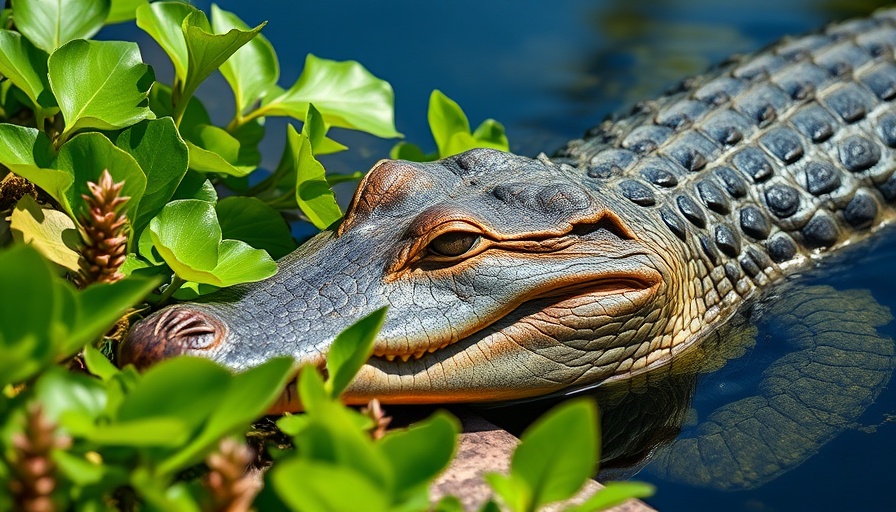
A Wake-Up Call for Exotic Animal Ownership
In a tragic incident that has stirred considerable concern, an 11-year-old boy in San Antonio, Texas, was injured by a kangaroo named Bobby—an exotic pet kept illegally by his family. This incident highlights not only the dangers of private exotic animal ownership but also raises questions about the enforcement of laws meant to protect both animals and humans.
The child was treated for his injuries and while they were not life-threatening, the situation serves as a stark reminder of the risks posed by keeping wild animals in suburban environments. Experts warn that even seemingly harmless animals like kangaroos can carry pathogens that could endanger public health, such as E. coli and salmonella.
Understanding the Consequences of Owning Wild Animals
Authorities swiftly acted post-incident, citing the boy's father for violations, including illegal possession of a prohibited animal and lack of proof for rabies vaccination. Bobby, now under a 30-day quarantine, symbolizes the growing trend of mismanaged wildlife care in private residences. The distressing reality is that Bobby is merely one among thousands of exotic animals that suffer poor living conditions at the hands of untrained owners.
When held captive, wild animals can suffer profound stress, leading to mental and physical health issues. These animals thrive in their natural habitats, where they belong in social groups known as “mobs,” rather than solitary confinement in backyards.
The Drive for Legislative Change
The incident has ignited calls for stronger regulations regarding private ownership of exotic animals. Recent successful legislation, such as the Big Cat Public Safety Act, has paved the way for increased protections, and advocates now urge Congress to pass the Captive Primate Safety Act. This Act aims to prohibit the private ownership and trade of monkeys and apes, and further expanding such bans could help prevent future tragedies involving other exotic species.
Making a Stand for Wildlife
As members of a community that cherishes wildlife, it is vital to advocate for stricter laws to protect these animals from being relinquished to stressful conditions. When we witness incidents of illegal exotic animal ownership, it is crucial to report them. Not only could action save an animal's life, but it can also protect local families.
This particular incident has the potential to herald a turning point in the discussion about private ownership of wildlife. By sharing Bobby’s story, advocates hope to elevate awareness and prompt necessary changes. It is a call to action for all of us to ensure that wild animals remain in their natural habitats where they can lead healthy, fulfilling lives.
If you care about the well-being of our wildlife and believe that creatures like Bobby should not be subjected to captivity, start by raising awareness and encouraging others to lend their voices to the cause. Together, we can work to protect these majestic animals and prevent further tragedies.
 Add Row
Add Row  Add
Add 




Write A Comment